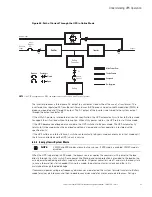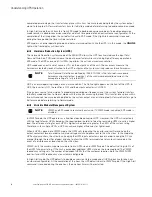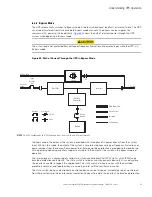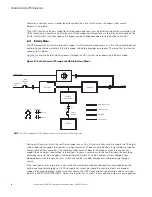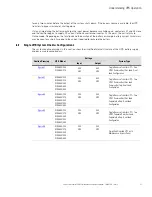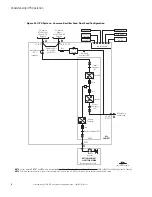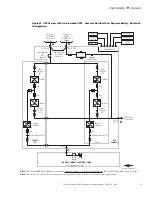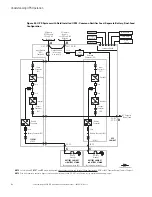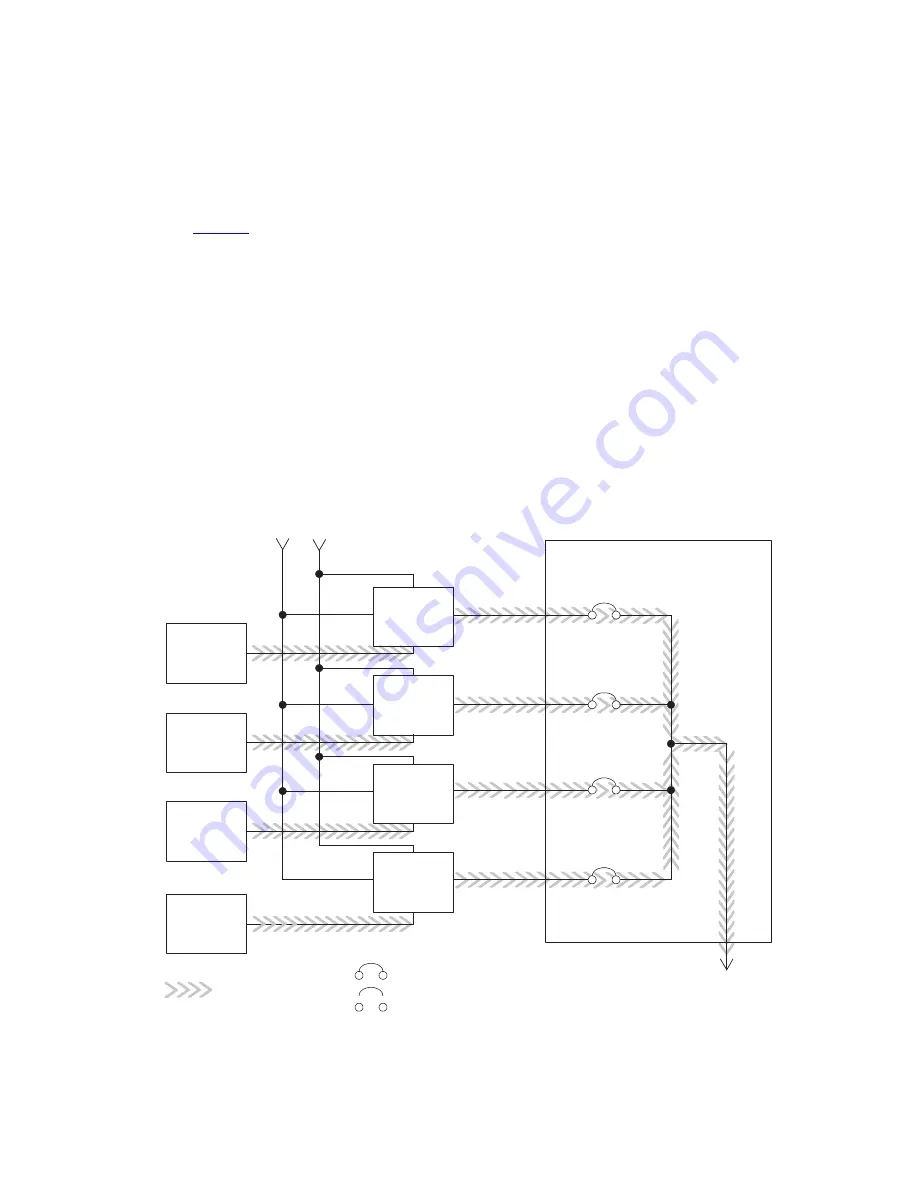
Eaton Power Xpert 9395 UPS Installation and Operation Manual 164201716—Rev 13
107
66..44..44
B
Baatttteerryy M
Mooddee –– D
Diissttrriibbuutteedd B
Byyppaassss
The UPSs transfer to Battery mode automatically if a utility power outage occurs, or if the utility power does not
conform to specified parameters. In Battery mode, the battery provides emergency DC power that the inverter
converts to AC power.
shows the path of electrical power through the distributed bypass system when operating in Battery
mode.
While in Battery mode, the UPSs sound an audible horn, illuminate visual indicator lamps on the front panel
(Online and On Battery), and create an entry into the alarm event history. As the battery discharges, the boost
converter and inverter constantly make minute adjustments maintaining a steady output. The UPSs remain in
this operating mode until the input power to the rectifier is again within the specified voltage or frequency
acceptance windows.
If the input power fails to return or is not within the acceptance windows required for normal operation, the
battery continues discharging until a DC voltage level is reached where the inverter output can no longer
support the shared loads. When this event occurs, each UPS issues another set of audible and visual alarms
that indicate a two-minute SHUTDOWN IMMINENT warning. Unless the system has a valid AC input soon,
redundant UPMs begin shutting down until there are no longer enough UPMs online to support the connected
load. When this event occurs, the system shuts down. If the bypass source is available, the system transfers to
bypass instead of shutting down.
Figure 59. Path of Current through the UPSs in Battery Mode – Distributed Bypass
Main Power Flow
UPS 1
UPS 2
UPS 3
UPS 4
Output to
Critical Load
Battery
UPS Input
Tie Cabinet
UPS 1 Output
Bypass Input
UPS 2 Output
UPS 3 Output
UPS 4 Output
Battery
Battery
Battery
Closed
Open
Breakers

